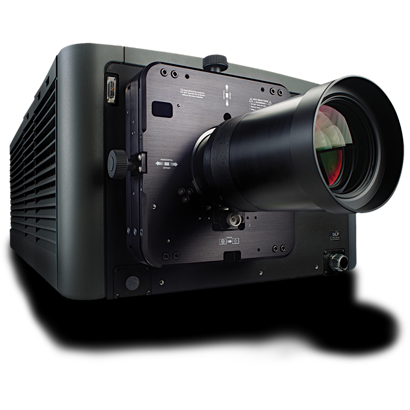·IMAGE
The image of a DCP is made up of a sequence of images compressed in JPEG2000 in an XYZ color space, with a color depth of 12 bits per channel and with a gamut of 2.6. The maximum BitRate can reach 500 Mbs / sec. and it is encapsulated in an MXF file.
The resolution and aspect ratio can be as follows:
· FULL ................................ 2048x1080(2K) .............. 4096x2160 (4K)
· FLAT - 1.85:1 .................. 1998x1080 (2K) ............. 3996x2160 (4K)
· SCOPE - 2.39:1 ............. 2048x858 (2K) ................ 4096x1716 (4K)
You can submit your work to us in a sequence of images or a video file, with a color depth of up to 16 bits and a gamut of sRGB, REC.709, REC.2020 or DCI-P3. We recommend delivery in TIFF or DPX with the highest possible color depth depending on how you finished your project. You can also provide us with a file with ProRes4444 or DNxHR444 codec.
The supported FrameRate are practically all those that are standardized in audiovisual production formats. International cinema distribution is based on 24 fps FrameRate. and it is recommended that your work for theatrical display be at this FrameRate.
·SOUND
A DCP can include up to 16 tracks of linear PCM audio and an additional MXF with Dolby ATMOS encoding. Multichannel 5.1 or 7.1 sound, being PCM, does not need Dolby encoding and therefore saves on the cost of this license. The most common settings are 5.1 and Dolby ATMOS.
To create a DCP we need each channel to be delivered separately in a .WAV file (mono) with a resolution of 24bits and a sampling frequency of 48Khz or 96Khz. In the case of Dolby ATMOS, you will have to send us the MXF generated in the mixing studio.
·COMPILATION
A DCP is a group of files that contain the image, sound and metadata that allow the Digital Cinema server to interpret the technical characteristics of its content. When all the files are compiled to create the DCP we can choose between 2 different standards, DCI (Interop) or SMPTE. Its main differences are in the supported playback frame rate, among other features. The DCI standard only supports 24fps and 48fps. The SMPTE standard from 24fps to 120fps.
The SMPTE build is the most recent and is considered the standard today. The compilation under the DCI recommendation is called Interop and has more restrictions, however it guarantees compatibility with older servers.
If your project is at 24 fps, it is advisable to perform the DCP with the Interop standard to guarantee the reproduction in all the projectors. If your project is with another framerate, the DCP will have to be carried out with the SMPTE standard.
·ENCRIPT AND KDM
Encrypted copies need a KDM key to be able to project them and generating this key has an additional cost per copy. The KDM is generated using the Public Key corresponding to the server of each destination movie theater and can only be played in that room with the established dates. Open copies have the advantage of saving in the generation and management of the KDM, being able to make multiple copies with the only cost of the support.
Non-encrypted prints are ideal for independent film distribution as they save on KDM management. We recommend them for small productions.
And if you need to plan a distribution with encrypted copies, we can generate the KDM keys with the information of the destination rooms according to your needs.
·PHYSICAL SUPPORT TO DISTRIBUTION
The DCP distribution according to the DCI recommendation is on a hard disk with an EXT3 file system, since most of the Digital Cinema servers are built on Linux systems, and not all of them are compatible with the one used by Windows / Mac (exFAT, NTFS, HFS +).
All DCI compliant digital cinema servers will necessarily have USB 2 and eSATA connections, and may additionally have a slot for direct loading from a CruDataport DX115 removable disk. The latter is a system adopted by the international film industry for the distribution of DCPs and is part of the specifications of the DCI standard.
